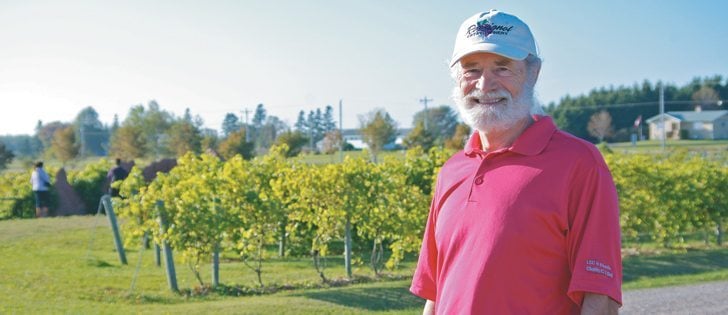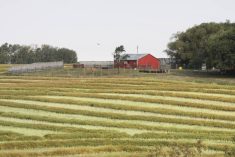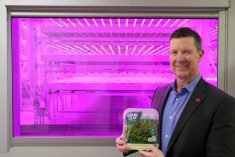Be unique | Winery operator says if it’s a novel idea, it will probably work
MURRAY RIVER, P.E.I. — John Rossignol sailed up the Northumberland Strait and into a grape growing hobby that became a first-of-its-kind business for the island province.
Rossignol Estate Winery grew from its owner’s desire to make a living on a farm while enjoying a rural lifestyle.
Being the first in an industry was fraught with unique challenges for the hobby sailor from Ontario, who once sold refrigeration systems to dairies and other industrial food plants.
“All answers to questions from government were no,” he said, noting most liquor laws went back to prohibition days.
Read Also

Nutritious pork packed with vitamins, essential minerals
Recipes for pork
Among Rossignol’s first undertakings was to get the local community and all levels of government on side with his novel business proposal to grow grapes and make wine.
“They’re happy if you’re creating jobs,” he said, noting the business employs as many as 12 people seasonally in the agritours, wine tasting and sales room and on the 11 acres of orchards at the winery as well as five acres located off site.
Rossignol persevered and connected with wine growers and re-searchers in Nova Scotia, secured funding and advice, planted grapes and started making wine.
“If I had 10 points to recommend, the first three would be research, research, research,” he said.
Good bookkeeping is also important in a highly regulated liquor industry.
“To be financially sustainable, you have to be prepared to look after that properly,” he said.
Adding value to raw products and working co-operatively with others have been keys to the success of the winery, which has since spawned other food enterprises on the island ranging from breweries to cheese making.
Most importantly, Rossignol said the farm operator has to enjoy the life and work.
“As an agricultural business, we do everything from start to finish. We grow grapes, run the farm and create the products, do the packaging and marketing,” he said.
His wife, Dagny Dryer Rossignol, is an artist and retired oncologist who designs the bottle labels.
“So we have to wear a different hat every day of the week,” said Rossignol.
He invested $250,000 in the business, half of which included government funding.
Rossignol now produces up to 40,000 bottles a year. Most are marketed locally, with some shipped as far as China.
The big seller is blueberry, but the company also offers cassis, wild rose liqueur, blackberry mead and table wines.
The many medals draped around the necks of bottles in the farm store reflect their success in wine competitions.
“You should work with what grows locally. That’s the way it is in the wine world,” said Rossignol.
All fruit used at the winery is grown in the province.
He said a new business should also include something novel for consumers.
“If it’s a good idea, if it’s unique and special and not copying someone else, it probably will work,” Rossignol said.
Groups such as Community Futures and the federal-provincial Business Link organization in Alberta are among resources available to budding entrepreneurs.
Gord Sawatzky, the Business Link’s executive director, said novel businesses are exciting but risky.
He advised starting with market research on demographics and buying trends to help understand the market.
“Individuals who are really passionate about the concept can get a little blinded by the concept,” Sawatzky said, noting the need to engage an objective third party adviser.
He stressed the importance of ongoing professional development and market research after the business is established.
“Step outside of the operation and look at the environment to ensure you maintain your relevance,” said Sawatzky.

















